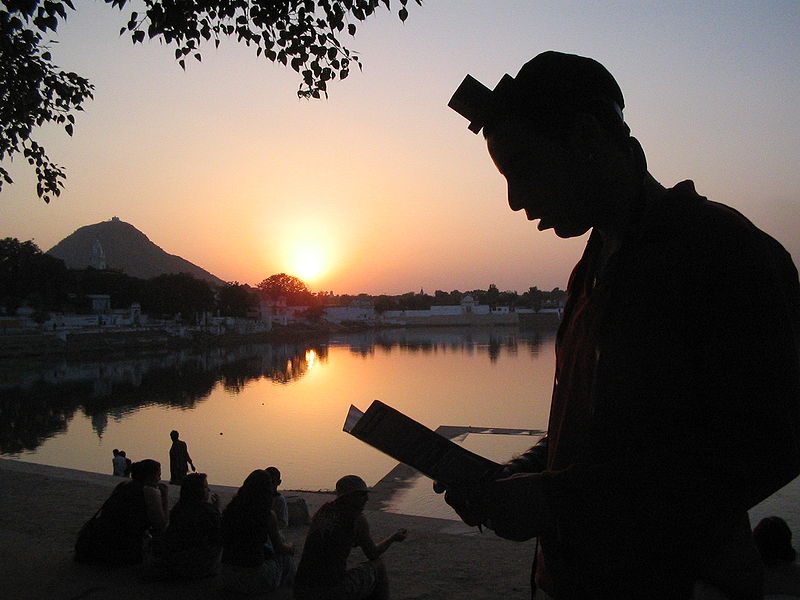
Kavanah. If you’re Jewish, you’ve probably heard the word thrown around by your Rabbi, or perhaps by a friend. Perhaps you use it yourself on a regular basis. For me, it’s a biggie. Loosely translated as “intention,” and related to the word kivun meaning “direction,” living life with kavanah is an ideal I strive towards on a daily basis. I find that being mindful about why I act the way I act makes my life significantly more meaningful.
So I was surprised when in a few conversations, some people spoke to a vicious “kavanah vs. keva debate” that they believe is raging across the world of Jewish prayer. Keva relates to the Hebrew word “kavua” which means “fixed,” “stable” or “permanent,” and these friends of mine seemed to think that making their prayer keva was tantamount to removing any and all emotion from the process. Indeed, Rabbi Shimon said almost two thousand years ago, in the ethical book Pirke Avot, that one should absolutely not make one’s prayer keva.
When they informed me of this, I found myself vigorously nodding my head. Of course I wanted kavanah to come out on top in this discussion! When people pray without feeling, it bothers me to no end. When somebody gives me a dirty look for drumming on a siddur or exhibiting some sort of physical connection to a service, my gut reaction is to drum their face with the siddur, although I generally find a way to restrain myself.
It turns out, many folks in liberal Jewish circles would agree with that sentiment. We look at a traditional Jew speeding his way through a service, barely pausing to take a breath, and we wonder how exactly there could be any thought happening at all, let alone thought that is in any way emotional or spiritual. I wondered this. A lot. So I decided to try it their way.
Starting the silent Amidah on a Friday night, I was poised. I was about to roll my way through these blessings as fast as I could, without pausing except to breathe occasionally. So I went for it. Gomeil-hasadim-tovim-vkoneh-hakol-vzocher-hasdei-avot-vimahot-umeivi…the words were practically on top of each other. I finished in only a couple minutes, and I sort of mindlessly dawdled for a little while as the rest of the room finished. I didn’t like this keva thing.
But then something funny happened. The next week, as I returned to my old way of davening, I realized that I was considerably more comfortable with the text. Where before I slowly stumbled my way through certain prayers whose Hebrew wording I was less familiar with, I didn’t have to pause as much. My prayer flowed more smoothly, and because I could spend less time worrying about the precise pronunciation of words, I was able to focus on my kavanah more fully.
Shockingly enough, my attempt at keva had actually paid off, and I repeated the process a number of times. What stunned me even more was that eventually this style felt as legitimate and meaningful as the one I had been utilizing before.
I should not have been stunned, and since then I have realized why. There shouldn’t be a kavanah vs. keva debate. They’re not opposites, and they both can play a vital role in prayer and in daily life. In Pirke Avot, the same text that criticized keva in prayer, the famous Rabbi Shammai paints it in a more positive light. He mentions the importance of making one’s Torah study keva, in this case meaning “steady” or “at regular intervals.” I have adopted that idea as part of my own life, through daily Torah, and that decision has fulfilled me in ways I would truly describe as life-changing.
I fell into a trap that many of us can fall into in life. I made an assumption about a practice I was unfamiliar with, and the assumption turned out to be unfair for a variety of reasons. We do a lot of assuming in the Jewish world, and it’s about time that we work to change that. Some traditional folks would probably describe Punk Torah as just another example of the dumbed-down Judaism that characterizes liberal denominations nowadays, and I, along with most of you reading this, would instantly react negatively to that sort of gross misrepresentation.
There are real debates in Judaism, make no mistake about it. Jews hold a vast array of opinions about everything from God and Torah to gay rights and the role of women. There is no need to implant artificial arguments like kavanah vs. keva on top of all of these when instead we could learn something from each other. Do me a favor. Next time you daven, find a prayer style completely different than what you are used to, and give it a shot. That small decision really can have a lasting impact on your spiritual life.

